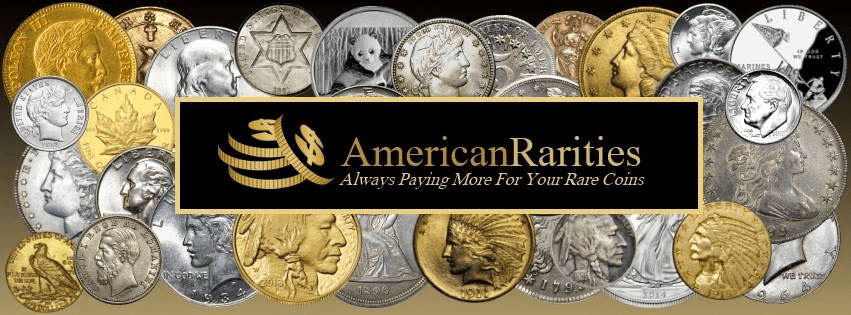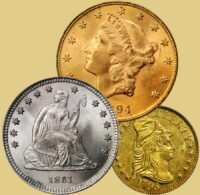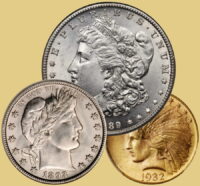Laws Pertaining to Purchasing or Selling
Gold Bullion and Silver Bullion in the United States
Information regarding State and Federal
Coin Laws and Tax Reporting Obligations'

Federal Reporting Requirements
Do I Have To Report Purchases and Sales of Gold Bullion, Silver Bullion, or Rare Coins to the Federal Government?

While almost all transactions are reporting free, our business is subject to the anti-money laundering provisions in the “Patriot Act,” enacted in 2001. Many dealers report more customer transactions than the law actually requires. We follow the law and have examined it carefully to be sure of our obligations. There is no requirement to report your purchase of precious metals with rare exception. For a disclosure requirement to be triggered, BOTH of the following conditions have to be met:
- The transaction is (or related transactions are) larger than $10,000 in size, AND
- Payment is made using actual cash (i.e. Federal Reserve notes and U.S. coins) or with two or more cash instruments (defined as money orders, cashier’s checks, or traveler’s checks) which, individually, are $10,000 or less but when totaled together equal more than $10,000. Personal checks, debits, bank wires, and credit card payments are NOT considered cash or cash instruments, and, therefore, purchases using them do not trigger disclosure by a dealer regardless of their amount(s).
IRS Form 8300 disclosure is applicable to all cash transactions in the United States economy meeting the aforementioned conditions – not just precious metals transactions.
In regards to purchases we are required to report the SALE of your precious metals only in some rare circumstances: IRS regulations dictate that only those items and quantities that can be used to fulfill a regulated Futures Contract (RFC) trigger the 1099B reporting requirement. Items are as follows below:
Sales of 50 oz. platinum (purity requirement of .9995) in bar sizes of 10 oz. or larger trigger a 1099B.
Sales of 100 oz. of palladium (purity requirement of .9995) in bar sizes of 10 oz. or larger trigger a 1099B.
Sales of 100 oz. of gold (purity requirement of .995) in not less than one 100 oz. bar, one kilo bar (32.15 oz), or ten 10 oz. bars require a 1099B.
Sales of 5,000 oz. of silver (purity requirement of .999) in not less than five 1,000 oz. bars or sales of 1,000 oz. in multiples of five require a 1099B.
Sales of silver bullion rounds, silver coins, 1, 5, 10, kilo, and 100 oz. silver bars, or any gold coins or rounds do not require a Form 1099B filing.
Note that individual taxpayers have their own reporting obligations as to their own tax returns. The IRS currently considers precious metals to be property, not money, it expects investors/owners to accurately report any capital gains or loss is measured in fiat dollars when the bullion is liquidated. You are urged to comply with this. Personal reporting is not required when the metals are purchased and not while the metal remains in your ownership. A capital gain or loss that would generally be included in your income tax obligation at the state level, as applicable.

State Coin Laws and Reporting Requirements
Do I Have To Report Purchases and Sales of Gold Bullion, Silver Bullion, or Rare Coins to my State Government?
Free Appraisal for Your Coins and Coin Collections
Email, Text, or Use This Form To Send Us Your Inventory List or Pictures
Email: staff@americanrarities.com | Phone: 800-622-5680 | Text: 720-600-4740



